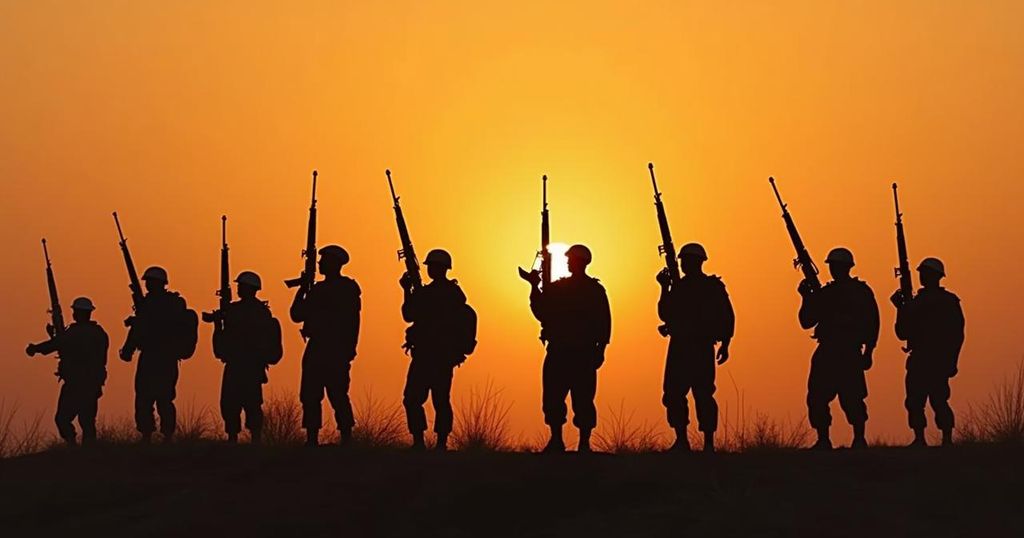UAE Accuses Sudanese Army of Bombing, Provokes Condemnation from Gulf States
The United Arab Emirates has accused the Sudanese army of bombing its ambassador’s residence, triggering widespread condemnation from Gulf countries and Egypt. Sudan denies the accusations, emphasizing its right to defend its territory. The incident has raised serious concerns over violations of international law that protect diplomatic missions.
On September 30, 2024, in an official statement made in Abu Dhabi, a representative of the United Arab Emirates (UAE) reiterated serious allegations against the Sudanese army, claiming that it bombed the UAE ambassador’s residence in Khartoum. This assertion has elicited widespread condemnation from various Gulf nations and Egypt. Sheikh Shakhbut bin Nahyan, the UAE Minister of State, characterized the actions of the Sudanese armed forces as a blatant attack, firmly denouncing the persistent assaults on civilians amid ongoing conflicts in Sudan. In response, Sudan’s foreign ministry and military spokesperson dismissed these allegations, asserting their commitment to defend national sovereignty and security. The situation prompted Saudi Arabia’s foreign ministry to express disapproval, labeling the incident as a violation of international law. Additionally, Jordan condemned the occurrence, describing it as a severe breach of international protocols safeguarding diplomatic missions as per the Vienna Convention. Oman’s foreign ministry echoed similar sentiments, criticizing the incident as a clear infringement of diplomatic norms and immunities, while Bahrain voiced strong denunciation and reaffirmed its support for the UAE. The Secretary-General of the Gulf Cooperation Council, Jasem Mohamed Al-Budaiwi, characterized the event as a blatant assault on diplomatic premises, and Egypt’s foreign ministry also raised alarms regarding the recent turmoil, underscoring the violation of international law and the principles of the 1961 Vienna Convention on Diplomatic Relations.
The diplomatic tensions surrounding the alleged bombing of the UAE ambassador’s residence in Sudan arise amidst a broader context of conflict and instability in the region. The ongoing clashes between various factions in Sudan have not only led to significant casualties and displacement but have also resulted in several incidents affecting diplomatic missions. These events raise critical concerns regarding adherence to international law, particularly the protections afforded to diplomatic personnel and facilities under the Vienna Convention on Diplomatic Relations, which is designed to preserve a safe environment for diplomacy in conflict zones. The UAE’s recent accusations reflect its heightened sensitivity to the safety of its diplomatic interests, with Gulf states rallying in support and voicing collective condemnation of any form of attack against diplomatic missions. Such incidents jeopardize regional stability and further complicate the intricate relationships among nations involved.
In conclusion, the repeated accusations made by the United Arab Emirates against the Sudanese army regarding the alleged bombing of its ambassador’s residence have provoked strong regional backlash from Gulf states and Egypt. This situation has illuminated the issues of international law violations and the sanctity of diplomatic premises, reinforcing the need for accountability and adherence to established diplomatic protocols in conflict areas. As tensions escalate, the interconnectedness of regional diplomacy and security remains a significant concern.
Original Source: sudantribune.com




Post Comment